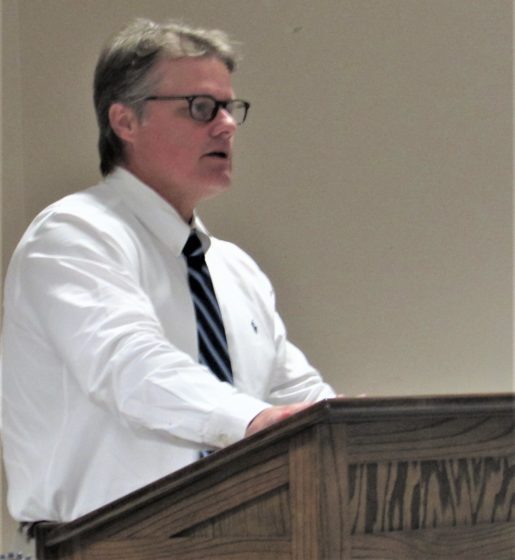Deas gives update on Child Advocacy Center progress
One last hurdle must be jumped before the Black Belt Regional Child Advocacy Center will open in Demopolis, serving victims of child abuse in the 17th Judicial Circuit of Alabama.

District Judge Vince Deas, speaking to the Demopolis Rotary Club Wednesday, said the local center was given pilot project status in June. A project dear to his heart since he became a district judge, Deas said this will be the last circuit in Alabama to have a CAC.
All that is needed to open is a forensic interviewer. That person is expected to undergo specialized training before the end of the year so that the center can open the first part of 2020.
Ideally, he said, he would like two such trained interviewers since they will have to be on call 24 hours a day, seven days a week.
There’s nothing complicated about child abuse, Deas said, but without all the elements in place to help investigate and prosecute the cases, things can turn into a “nightmare,” especially for the victim.
The facility is one place that provides a safe, child-friendly environment where law enforcement, child protective services, prosecution and medical and mental health professionals can share information and develop ways to help each individual, unique case.
Having a local CAC will prevent having to transport the victim a long distance for medical exams and interviews. Someone would be with the child victim at every step to help him or her through the ordeal.
It often takes between 18 to 24 months between the report of the abuse and a final resolution of the case, he continued. The question becomes who stays with the victim to get them through the process.
Deas see another urgent need for a Child Advocacy Center.
“After the dust settles,” he asked, “where does the victim go from there?”
More often than not the victim of sexual abuse – usually a girl – is uneducated and/or from a single parent home. She ends us have babies too early, dropping out of school and perpetuating the cycle again.
The problem “snowballs” unless there is some way to disrupt the cycle, he said. The CAC can do just that.
“Having the right pieces in the right place at the very beginning” goes a long way toward changing the outcome.
“If you can disrupt that cycle in one child, you don’t know what you’ve done for this community,” Deas said.
He told of two young women who, with the help of centers in other circuits, broke the cycle. One joined the military, and another is in medical school.
While at first glance it seems the CAC is biased on the side of the victim, it also helps in determining if a child is making up a story of abuse. The aim, Deas said, is getting evidence in an ethical way and making the process fair for both the accused and the alleged victim.
Deas said the CAC will be housed in a donated building on North Strawberry Street. He has secured grants, money and in-kind donations from private sources and individuals to help prepare the center. The Marengo County Commission has provided the funding for the forensic interview training.
After that, however, with the exception of about $12,000 from the state each year, funding is up to each center. “We must have fund-raisers,” he said.
Although he has been instrumental in getting the center started, once the doors open Deas will have to back out of any direct involvement. As judge, he must remain impartial.
Anyone interested in making a donation or providing other support to the CAC is asked to contact Charlotte Webb at 334-341-9025 or 334-295-5838 between the hours of 9 a.m. and 5 p.m.
